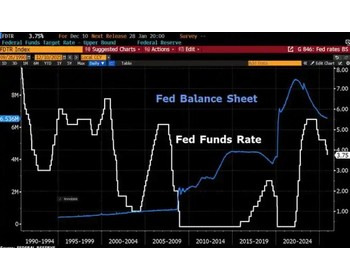Recently, several global maritime consulting firms have stated that the ongoing Red Sea crisis has had a serious impact on global supply chains. Sea Intelligence, a well-known maritime consultancy, said that compared with the initial stage of the COVID-19 epidemic, the interruption of the current Red Sea routes has caused greater damage to the global supply chain.
The agency stated in a report that the current decline in ship capacity is the second largest in recent years. An event with a greater impact than the current crisis was the grounding of the super large cargo ship "Nagasaki", which caused the Suez Canal to experience a six day "Century Blockage". At that time, trade stalled and losses reached $9 billion per day. According to the agency's estimate, about 10% of the global fleet is currently idle, which is a serious problem that cannot be ignored.
Many world-renowned companies have stated that the delay of container ships has had a huge impact on their supply chain. Tesla, Volvo, and Michelin recently reported that some of their factories have been forced to suspend production. However, global home furnishing giant IKEA has stated that some of its products may experience delivery delays.
In recent years, geopolitical conflicts and other uncertain factors have emerged one after another, posing significant challenges to supply chain operations. This has not only increased logistics operating costs for overseas merchants, but also reduced supply chain efficiency, resulting in greater uncertainty in customer experience. And issues like the Red Sea crisis can even become fatal black swan events for overseas companies.
If the Red Sea crisis continues to ferment, most container ships may choose to detour the Cape of Good Hope instead of reaching Nordic ports through the Suez Canal, which will increase the transportation distance to Nordic ports by 30% compared to the most economical route. This will have an impact on freight rates from the cost side, and the time cost will also increase by at least about 10 days.
Since the outbreak of a new round of Palestinian Israeli conflict, Yemeni Husai militants have repeatedly attacked and seized commercial ships in the Red Sea waters. In November last year, the Yemeni Houthi armed forces expanded their range of attack on Israeli targets and began to strike "ships related to Israel" in the Red Sea, continuously escalating related threats, resulting in multiple cargo ships being attacked in the Red Sea, the Strait of Manda, and nearby waters. Last December, several international shipping companies announced the suspension of the Red Sea route and instead diverted to the southern tip of Africa's Cape of Good Hope.
At the same time, the United States and Britain began to strike against the Yemeni Houthi armed forces. On the 20th local time, the US Central Command announced that the US military destroyed an anti-ship missile launcher belonging to the Houthi armed forces in Yemen on the same day. This is the fifth time in the past week that the US military has launched a missile system attack against the Housai armed forces. However, US President Biden admitted on the 18th that the US military's recent airstrikes have failed to stop the actions of the Houser militants in the Red Sea waters. Nevertheless, the US military will not stop airstrikes.
Against this backdrop, the EU suddenly announced a new plan, causing another stir in the Red Sea situation. According to Reuters, EU diplomats recently announced that member states have reached a preliminary consensus to launch a naval joint operation in the Red Sea. It is understood that the European Union will form an action team by February 19th at the latest and start executing the task as soon as possible.
It can be said that the EU has seen that in the context of the illegal crackdown on Yemen by the US and UK coalition forces, the closer we get to the US and UK, the more likely we are to be caught up in the Red Sea crisis, making the situation even more unfavorable for ourselves. Currently, there is a high level of anti Israel public opinion within Europe, and most people around the world do not want European leaders to support Israel and involve Europe in conflicts.
Therefore, the EU's approach is also a last resort. Obviously, the EU hopes to only escort its own ships and not participate in other conflicts in the Middle East, especially in the crackdown on the Yemeni Houthi armed forces and intervention in the Palestinian Israeli issue, so that its ships will not be subject to retaliation and attacks from the Houthi armed forces. At the same time, the European Union recently announced to the public that it will not classify the Hussai armed group as a "terrorist organization" like the United States, as it has already sanctioned the Hussai armed group.
The Red Sea crisis is one of the main manifestations of the spillover of the Israeli Palestinian conflict, and the US military's raid has exacerbated local conflicts, putting the Red Sea situation at greater risk. The entire region is in a very dangerous and difficult period, and even causing further differences between the EU and the United States, putting the global geopolitical landscape in a greater uncertainty, which is a result that no one wants to see.




























